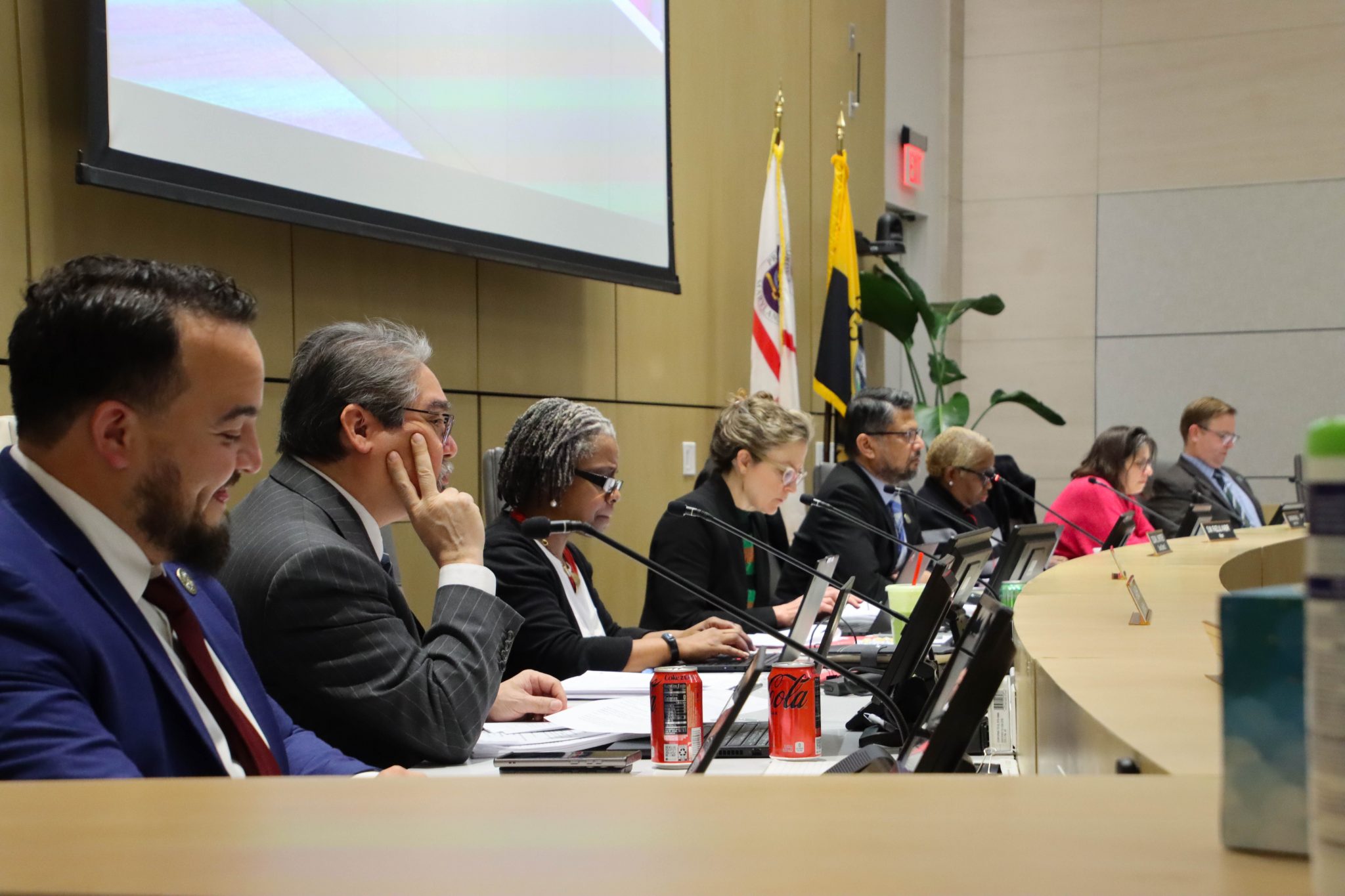The College Park City Council discussed possible solutions to residential over-occupancy and overcrowding in the city at Tuesday’s meeting.
Residential over-occupancy occurs when more than five unrelated people are living in a rental housing unit, Jatinder Khokhar, the city’s public services director, said during the meeting. This can lead to residents violating code enforcements — or property maintenance policies — when they don’t get proper permits or use small spaces for sleeping areas.
Residential overcrowding has fluctuated within the last five to 10 years, according to city documents.
After receiving an over-occupancy complaint, the city first informs the residence’s owner and tenants that there will be an inspection, Khokhar said. If an over-occupancy is found during the inspection, the city issues a notice of violation and allows the residents time to fix the issue before reinspection.
Mayor Pro Tem and District 4 council member Denise Mitchell acknowledged the need for conversation about over-occupancy during the meeting.
“It’s not [the council] trying to be punitive,” Mitchell said. “It’s trying to ensure that all the residents that live in College Park have the best quality of life that they can.”
[UMD chaplain Ray Ranker wins College Park City Council District 3 special election]
City attorney Stephanie Anderson recommended the city review and revise code enforcements and be sure they are understood by residents. She also said the city should revisit the violation and penalties section of its code and make changes to the weight of the punishments.
“We need to motivate good behavior,” Anderson said. “If there’s not significant sanctions to correct violations then people will ignore it.”
District 2 council member Llatetra Brown Esters agreed with Anderson and asked her colleagues to be transparent with residents about code violations. While it’s valuable for the council to encourage residents to be aware of their neighbors, it shouldn’t be left to them to report violations, she said.
Esters added that when the time and date of the city’s residential inspections are publicized, people have time to prepare, which can counteract the goal of the inspections.
District 2 council member Susan Whitney said over-occupancy stems from a lack of affordable housing.
Though more people living in a house makes it more affordable, the ability for investors to turn these houses into revenue generators instead of long-term living places makes it harder for homeowners to buy houses in College Park, she said.
[College Park community members debate lowering city voting age to 16]
Whitney suggested the city look into solutions from similar situations in other college towns.
“I want the college students that live here to be able to afford to live here,” Whitney said.
District 1 council member Alan Hew recommended rules limiting the number of rentals in the city. This would make it more competitive for landlords to get a permit to rent, Hew said, increasing permitting restrictions.
But the lack of on-campus housing forces students to rely on affordable off-campus housing, student liaison Erica Otte said. Limiting the number of rentals could affect students’ ability to afford to rent and attend the University of Maryland, the senior government and politics major said.
Otte also acknowledged that many students experience struggles with housing right before the academic year begins, leaving them scrambling to find affordable options.
“I personally know people that were affected by this,” Otte said. “We should really make a decision urgently before the next school semester starts.”
Though the council did not act on any of the suggestions, it agreed to continue discussions about the topic at future meetings.
“This is great feedback and a lot of great suggestions have been provided in this session,” Khokhar said. “[The city staff] will involve feedback and try to come up with a plan to bring it back to [the city council].”



